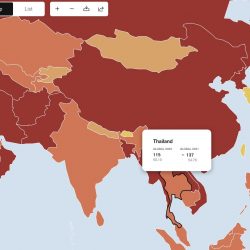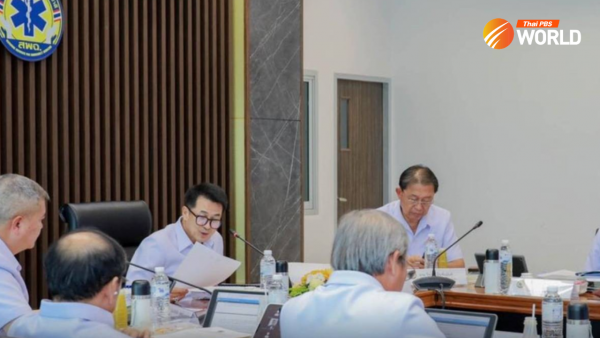Preparations underway for resumption of on-site classes on May 17th

Thailand’s Education and Public Health ministries have adopted several measures in preparation for the resumption of on-site classes on May 17th at schools across the country, after almost two years of online learning due to the COVID-19 pandemic.
Although numerous safety measures are in place, they are less restrictive than they were at the start of the pandemic, to reflect the changing situation which saw new COVID-19 infections and deaths steadily slowing after the Songkran holidays.
Deputy Public Health Minister Sathit Pitutecha told a press conference today (Wednesday) that the ministries have adjusted learning and teaching methods to be in line with the COVID-19 situation and to enhance learning by students in a safe environment.
For regular schools, he said they must have isolation plans in place, which have been approved by public health officials, parents, communities and educational committees. This time, however, if there are infections in a classroom, he said it will be disinfected and then resume class as normal.
If a student is found to have had close contact with an infected person and he or she is fully inoculated, they will be allowed to attend class, but with joint consent from parents, health officials and the school in question. For those who are not vaccinated, they will have to go into five days of home isolation and another five days under observation. If they develop symptoms, they must administer rapid antigen tests immediately. Tests are not required for those without symptoms, but they are advised to take a rapid antigen test on the 5th and 10th day following exposure.
For boarding schools, infected students must be separated in the school compound under the “Sandbox” Safety Zone program, said Sathit.
Meanwhile, Education Permanent Secretary Supat Champathong said all schools must conduct self-assessments, to ensure that they meet the 44-point “Thai Stop COVID Plus” standard, introduced by the Health Services Department, then they must receive permission from the provincial communicable disease committee before they are allowed to resume on-site classes.
When classes resume, schools must ensure social distancing in classrooms, but in a less restrictive way than during the second semester of last year. The distance between each desk is reduced to one metre instead of 1.5 metres, which means an 8×8 metre classroom can accommodate 42 desks.
For schools which have air-conditioned classrooms, they must open their doors or windows for 10 minutes every two hours.
Talking with each other while students are having lunch is not allowed, because they have to remove their face masks. They are required to wear face masks all the time while in classrooms and outside during breaks.
Supat said that, if more than five infections are found in more than two classes in a school, the school must be closed for three days for disinfection and health officials must be notified so they can come in to supervise and prevent the spread of the disease.
Dr. Opart Karnkawinpong, director of the Disease Control Department, said the most effective and safest way for students to protect against COVID-19 infection is to boost their immunity through vaccination.
He said the Public Health Ministry will provide free vaccination at schools, with the Pfizer vaccine, for students aged from 12 to 17 from May 9
th until the end of the month across the country.
For non-formal education students, they can receive vaccines at hospitals.
Students who have received two vaccine shots should receive their booster, of half a dose, 4-6 months after the second dose, said Dr. Opart.






